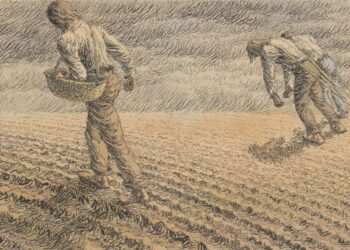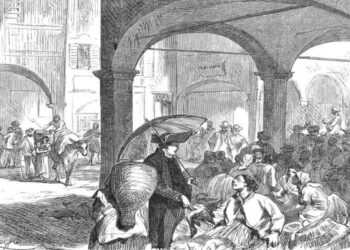Thomas Jefferson, a towering figure in American history, is celebrated for his pivotal role in shaping the nation’s founding principles and ideals. Yet, behind his illustrious legacy lies a journey through academia that played a fundamental role in shaping his worldview and political philosophy. Among the myriad facets of Jefferson’s life, his collegiate education is crucial, offering insights into the intellectual formation of one of America’s Founding Fathers. In this article, we embark on a journey to unravel Thomas Jefferson’s educational path, focusing on the colleges he attended and the impact of his academic pursuits on the course of American history. By exploring Jefferson’s collegiate years, we gain a deeper understanding of the foundations upon which his remarkable contributions to the nation were built.
What college did Thomas Jefferson go to?
Thomas Jefferson attended the College of William & Mary in Williamsburg, Virginia. He enrolled at 16 in 1760 and completed his studies in 1762. At William & Mary, Jefferson pursued a rigorous curriculum that included classical languages, philosophy, mathematics, and law. His time at the college significantly shaped his intellectual development and laid the groundwork for his future contributions to American politics and governance.
Early Life And Education Of Thomas Jefferson
Thomas Jefferson’s early life and education were marked by a combination of privilege, intellectual curiosity, and the influences of the colonial American society of the 18th century.
Family Background: Jefferson was born on April 13, 1743, in Shadwell, Virginia, to a prominent family of English descent. His father, Peter Jefferson, was a successful planter and surveyor, while his mother, Jane Randolph Jefferson, came from one of the most distinguished families in Virginia.
Upbringing and Education: From an early age, Jefferson received an education influenced by the Enlightenment ideals of reason, liberty, and progress. His parents instilled in him a love for learning and a strong work ethic. He was tutored at home in languages, mathematics, and the sciences, laying the foundation for his later academic pursuits.
Collegiate Education: At 16, Jefferson left home to attend the College of William & Mary, where he pursued a classical education. He was deeply influenced by the teachings of his professors, particularly those of William Small, a Scottish-born mathematician and philosopher, and George Wythe, a prominent legal scholar. Jefferson immersed himself in studying philosophy, mathematics, and the classics, demonstrating an early aptitude for intellectual inquiry.
Intellectual Development: Jefferson’s collegiate years shaped his intellectual development and worldview. He was drawn to the works of Enlightenment thinkers such as John Locke, Francis Bacon, and Isaac Newton, whose ideas would profoundly influence his political philosophy. Jefferson’s time at William & Mary broadened his horizons and laid the groundwork for his future endeavors as a statesman, philosopher, and architect of American democracy.
Legacy: The early education of Thomas Jefferson exemplifies the Enlightenment ideals of education as a means of personal and societal enlightenment. His commitment to learning and intellectual exploration would permeate his life’s work, from his contributions to the Declaration of Independence to his establishment of the University of Virginia. Jefferson’s legacy as a champion of education and intellectual freedom endures as a cornerstone of American democracy.
Thomas Jefferson’s College Years
Thomas Jefferson attended the esteemed College of William & Mary in Williamsburg, Virginia, during his college years. From 1760 to 1762, this period was formative for the young Jefferson, offering him an environment rich in academic rigor and intellectual stimulation.
Enrollment at William & Mary:
At 16, Jefferson entered the College of William & Mary, following in the footsteps of his older brothers. Established in 1693, William & Mary was one of the few institutions of higher learning in the American colonies at the time. Jefferson’s college enrollment reflected Virginia’s elite’s aspirations to provide their sons with a classical education.
Curriculum and Studies:
At William & Mary, Jefferson immersed himself in various subjects, ranging from the classics to mathematics and natural philosophy. The curriculum emphasized the study of Latin, Greek, rhetoric, and logic, reflecting the classical tradition of education prevalent in colonial America. Jefferson’s studies also included mathematics, ethics, and natural law, laying the groundwork for his future pursuits in politics, philosophy, and law.
Influences and Mentors:
Jefferson’s time at William & Mary exposed him to influential mentors who would leave a lasting impact on his intellectual development. Among these mentors was William Small, a Scottish-born mathematics and natural philosophy professor whose enlightened teachings fostered Jefferson’s interest in science and reason. Jefferson also formed a close bond with George Wythe, a prominent legal scholar and future signer of the Declaration of Independence, who inspired Jefferson’s passion for the law and principles of justice.
Extracurricular Activities:
In addition to his academic pursuits, Jefferson engaged in various extracurricular activities during college. He participated in literary societies and debates, honing his rhetoric and argumentation skills. Jefferson’s involvement in these activities enriched his college experience and contributed to his development as a well-rounded scholar and future statesman.
Impact on Jefferson’s Life:
The College of William & Mary played a pivotal role in shaping Jefferson’s intellectual interests, values, and aspirations. His experiences at the college instilled in him a deep appreciation for learning, reason, and the pursuit of knowledge. The friendships and mentorships he formed at William & Mary would influence his future endeavors, including his contributions to American politics, drafting the Declaration of Independence, and establishing the University of Virginia.
The College Of William & Mary: Jefferson’s Alma Mater
The College of William & Mary holds a distinguished place in the annals of American higher education, serving as the alma mater of Thomas Jefferson, one of the nation’s foremost founding fathers. Jefferson’s association with William & Mary, lasting from 1760 to 1762, left an indelible mark on the institution and the trajectory of his own life.
- Historical Context: Founded in 1693 by a royal charter issued by King William III and Queen Mary II of England, the College of William & Mary is the second-oldest institution of higher learning in the United States. Located in Williamsburg, Virginia, the college was established to educate the youth of the Virginia colony in the principles of classical learning and the Christian faith.
- Jefferson’s Enrollment: Thomas Jefferson’s enrollment at William & Mary marked the beginning of a transformative period in his life. Following the footsteps of his older brothers, he entered college at 16, eager to pursue a classical education that would prepare him for a life of public service.
- Academic Environment: At William & Mary, Jefferson encountered a rigorous academic environment characterized by a curriculum grounded in the traditions of the liberal arts and sciences. He delved into studying Latin, Greek, mathematics, philosophy, and natural history, immersing himself in the intellectual pursuits that would shape his future endeavors.
- Influence of Mentors: The faculty at William & Mary played a crucial role in shaping Jefferson’s intellectual development. His interactions with professors such as William Small and George Wythe left a lasting impression on his worldview. Small, a Scottish-born mathematician and philosopher, kindled Jefferson’s passion for science and reason, while Wythe, a distinguished legal scholar, nurtured his interest in law and justice.
- Legacy: Jefferson’s association with William & Mary is a testament to the college’s enduring legacy as a cradle of American intellect and leadership. His time at the institution laid the foundation for his future accomplishments as a statesman, philosopher, and architect of democracy. Moreover, his advocacy for education and his vision for the University of Virginia, founded in 1819, reflect the enduring influence of his alma mater.
Conclusion
Thomas Jefferson’s association with the College of William & Mary represents a pivotal chapter in the institution’s history and the United States. His enrollment at William & Mary began a transformative journey of intellectual exploration and personal growth. The rigorous academic environment and the guidance of influential mentors such as William Small and George Wythe played a vital role in shaping Jefferson’s worldview and preparing him for a life dedicated to the pursuit of knowledge and the advancement of democratic ideals. Jefferson’s legacy as a statesman, philosopher, and champion of education is deeply intertwined with his experiences at William & Mary. His commitment to liberty, reason, and the principles of democracy were forged in the college halls, laying the groundwork for his future contributions to American society.
FAQ’s
What was Thomas Jefferson’s major in college?
Jefferson’s major field of study at the College of William & Mary was not officially recorded. Still, he likely pursued a classical education, including Latin, Greek, philosophy, mathematics, and law studies.
How old was Thomas Jefferson when he went to college?
Thomas Jefferson was 16 years old when he enrolled at the College of William & Mary.
What other colleges did Thomas Jefferson attend?
Apart from the College of William & Mary, Thomas Jefferson did not attend any other colleges.







